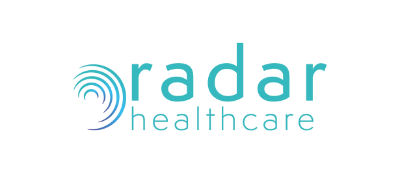The NHS, COVID, and a ‘digital first’ future - a consultant’s view
19 October 2020
Tags:
As we head towards healthcare’s busiest season, Peter Gerber, an independent consultant who helps organisations navigate the NHS, shares his views on this whirlwind year – including key learnings, digital transformation, and preparing for one of the most difficult winters yet…
Peter, what are your key learnings from this whirlwind year?
I’ve always marvelled at the NHS’ ability to thrive in a crisis, and responding to COVID has been no exception – particularly in its use of digital technology. We’ve seen many traditionally separate areas of the NHS using technology to collaborate, which is exactly the way of working that I know many of us would love to stay.
Over in Primary Care, clinicians and GPs use of phone and video to conduct appointments has been another technological success. While there’ll always be a need for face to face appointments, I hope this approach continues.
However, an area for improvement is communication between the regions and central decision makers – I think we can use everything we learned during COVID to find a more joined up approach.
The biggest digital change?
While front line healthcare teams have obviously needed to continue to work in clinical settings, back room teams are now able to access systems remotely so they can work from home. This is a huge change for the NHS, which has traditionally avoided remote working due to concerns about the confidentiality and security risks associated with accessing systems off-site. However, the benefits we’ve seen are a great example of how investing in secure, modern technology can truly make a difference.
Challenges this winter?
Worryingly, we have the makings of a perfect storm – with all of the usual winter pressures, an emerging second wave, and the delays caused by COVID all competing for attention. But I’m confident that everything we’ve learned earlier this year has put our fantastic healthcare teams in a good position to respond.
There’s no doubt that one of the biggest challenges will be working through the backlog of patients waiting for Outpatients Clinics to reopen, as well as giving people the confidence to come back to the hospitals.
Many hospitals are continuing with COVID-free wards to help manage the treatment of non-COVID patients, as well as setting up the Nightingale Hospitals. Technology will also play a key role in getting us through the winter. For example, video and phone calls will continue to help manage the backlog of appointments where appropriate.
Utilising real-time data to monitor, evaluate and plan will also be a huge benefit for the areas who have the technology to support this.
Healthcare’s ‘digital first’ future?
Realising the full benefits of a digitally mature healthcare service will be a long journey, but this year has shown many encouraging signs of progress. For example, many NHS Trusts are appointing Chief Information Officers and similar positions to help with the rapid transition to digital, and the CQC are preparing their new strategy which is expected to have a more digital focus.
We’ve seen huge steps in introducing tech that supports automation and streamlining of care processes in hospitals. It can integrate with NHS systems to enable staff to better manage infection control, record patient assessments electronically, and support national research.
Final thoughts?
In healthcare, while we have more to do to utilise digital technology to its full potential, the response to COVID has moved us much further along the journey.
I’d love to see more of healthcare embracing digital. And for the areas already realising the benefits, I’m keen to see a focus on fully utilising the data that technology makes available. Afterall, digital maturity is not just about having the right systems in place, it’s also about knowing how to use the data intelligence the systems provide to make long lasting improvements.
Find out more about how Radar Healthcare is supporting the NHS’ digital journey by reading London Central and West’s case study, or book a demo.







